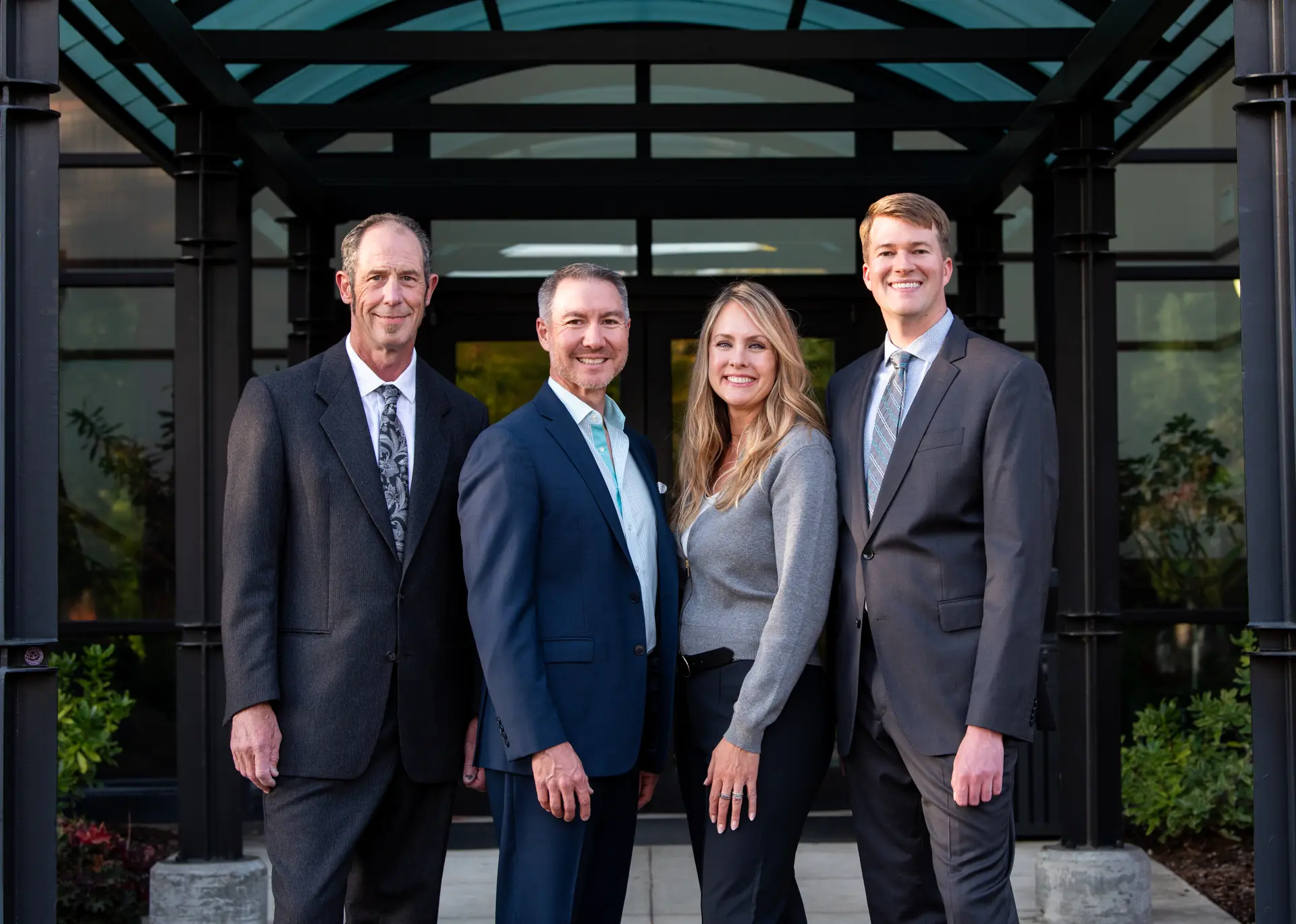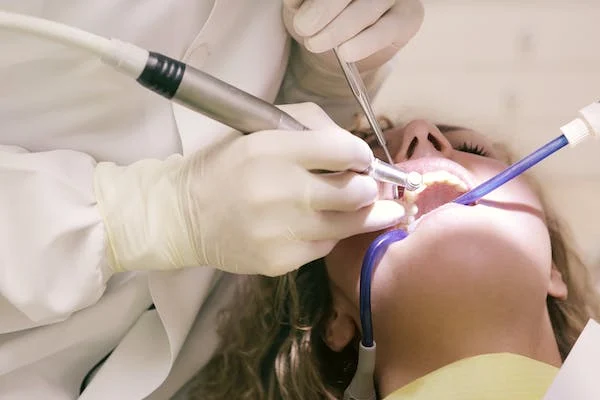A large number of people throughout the world suffer from bruxism, which is another name for teeth grinding. While a little bit of teeth grinding here and there probably won’t hurt, excessive or persistent grinding can create major problems with your teeth and gums and may need dental work done.
In this blog, we’ll explore the common causes of teeth grinding, its relationship to the necessity of tooth removal, the role of stress and anxiety in exacerbating bruxism, specific dental conditions that can contribute to teeth grinding and require tooth removal, and the impact of bruxism on overall dental health.
What Are The Common Causes Of Teeth Grinding And How Does It Relate To The Necessity Of Tooth Removal?
Teeth grinding, also known as bruxism, is a common issue that affects many people, especially during sleep. Understanding why it happens and how it can lead to severe dental problems, including the necessity of tooth removal, is crucial. Here are the common causes of teeth grinding and its implications:
Common Causes of Teeth Grinding
- Stress and Anxiety: High levels of stress and anxiety can lead to involuntary clenching and grinding of teeth, particularly during sleep.
- Sleep Disorders: Conditions like sleep apnea are often associated with bruxism. Disruptions in sleep patterns can trigger teeth grinding.
- Misaligned Teeth: Abnormal alignment of teeth can cause uneven jaw pressure, leading to grinding.
- Lifestyle Factors: Consumption of caffeine, alcohol, and smoking are linked to higher rates of bruxism.
- Other Health Conditions: Certain neurological and psychiatric disorders may also predispose individuals to teeth grinding.
How Teeth Grinding Relates to Tooth Removal
Teeth grinding, if not addressed timely, can lead to severe dental issues that might necessitate tooth removal. Here’s how:
- Excessive Wear and Tear: Chronic grinding can wear down the enamel, leading to tooth sensitivity and decay. Over time, this can result in the structural weakening of teeth, making them susceptible to fractures.
- Gum Recession and Tooth Loss: The intense force from grinding can cause gums to recede. As the support for teeth weakens, tooth stability is compromised, potentially leading to tooth loss.
- Cracks and Fractures: Persistent grinding can lead to cracks or fractures in the teeth, which in severe cases, might require extraction if restoration is not feasible.
Understanding the causes and addressing teeth grinding early with interventions like stress management, using mouth guards, and ensuring proper dental alignment can significantly reduce the risk of severe dental damage and the subsequent need for tooth removal.
How Do Stress And Anxiety Contribute To Teeth Grinding, And When Might Tooth Removal Be Considered A Solution?
Stress and anxiety are common triggers for teeth grinding, as they can lead to heightened muscle tension and jaw clenching, particularly during sleep. Individuals experiencing chronic stress or anxiety may unconsciously grind their teeth as a coping mechanism, exacerbating bruxism over time.
In cases where stress management techniques and behavioral interventions fail to alleviate bruxism-related symptoms, tooth removal may be considered as a solution to prevent further damage and alleviate discomfort.
Are There Specific Dental Conditions Or Misalignments That Can Lead To Teeth Grinding, Prompting The Need For Tooth Removal?
Certain dental conditions and misalignments can increase the risk of teeth grinding, necessitating tooth removal as part of the treatment plan. For example, temporomandibular joint (TMJ) disorders, characterized by dysfunction or misalignment of the jaw joint, can contribute to bruxism and may require tooth removal to alleviate symptoms and improve jaw function.
Additionally, severe tooth decay, periodontal disease, or impacted wisdom teeth can cause discomfort and instability in the mouth, leading to bruxism and tooth removal to restore oral health.
What Role Does Bruxism Play In The Decision-making Process For Tooth Removal And How Does It Impact Overall Dental Health?
Bruxism plays a significant role in the decision-making process for tooth removal, as chronic teeth grinding can result in irreversible damage to the teeth and surrounding structures.
In cases where conservative treatments such as mouth guards, stress management techniques, and dental adjustments fail to mitigate bruxism-related symptoms, tooth removal may be necessary to prevent further complications and preserve oral health.
Additionally, addressing bruxism through tooth removal can alleviate pain, discomfort, and functional limitations associated with damaged or compromised teeth, improving overall dental health and quality of life.
Teeth grinding poses a risk to dental health and can impact overall well-being if left unchecked. To effectively prevent and treat bruxism, it is essential to understand its causes and implications. The first step in getting the help you need if you’re suffering any of the symptoms associated with tooth grinding is scheduling an appointment with a dentist.
Ultimately, when conservative therapies for bruxism have been unsuccessful or when extensive tooth damage has occurred, the recommendation to remove the affected tooth(s) may be made.
By addressing the underlying causes of teeth grinding and implementing appropriate interventions, individuals can protect their dental health and enjoy a healthy, functional smile for years.
Partner with Cascade Dental: Your Path to Dental Wellness
With our unwavering commitment to patient-centered care and cutting-edge treatments, we’re dedicated to helping you achieve optimal dental health and reclaim your smile.
Specialized Expertise in Bruxism Management and Tooth Removal
With advanced training and a deep understanding of dental conditions and treatments, we can effectively diagnose, treat, and prevent teeth-grinding-related issues. Whether you require custom mouth guards to protect against bruxism or surgical intervention for tooth removal, we tailor each treatment plan to meet your unique needs and goals, ensuring optimal outcomes and patient satisfaction.
Compassionate Care and Personalized Support
We understand that dealing with teeth grinding and the prospect of tooth removal can be overwhelming and distressing. From your initial consultation to post-treatment follow-up, our dedicated team is here to aid you in every step of the way. We take the time to listen to your concerns, address your questions, and provide reassurance and encouragement throughout your dental journey.
State-of-the-Art Facilities and Technology
Our modern dental office is equipped with advanced diagnostic tools, digital imaging equipment, and innovative treatment modalities, allowing us to provide precise, efficient, and effective solutions for teeth grinding and tooth removal. Whether you’re undergoing a comprehensive dental evaluation, receiving customized treatment, or undergoing surgical procedures, you can trust that you’re in capable hands at Cascade Dental.
Transparent Pricing and Flexible Financing Options
We strive to make our services as accessible and affordable as possible. Cascade Dental offers transparent pricing and flexible financing options to accommodate various budgets and financial circumstances. The cost of tooth removal for bruxism-related issues can vary depending on the complexity and extent of treatment required.
Frequently Asked Questions
Q: Will my dental insurance cover the cost of tooth removal for bruxism-related issues?
A: Dental insurance coverage for tooth removal procedures can vary depending on your insurance provider and the specifics of your plan. Our knowledgeable team at Cascade Dental can assist you in navigating your insurance coverage and exploring alternative financing options to make treatment more affordable.
Q: How long does recovery take after tooth removal for bruxism-related issues?
A: The recovery time after tooth removal can vary depending on the complexity of the extraction and individual healing factors. In general, most patients can expect to experience some discomfort and swelling for a few days following the procedure. Our team will provide detailed post-operative instructions and recommendations for managing pain and promoting healing during recovery.
Q: Are there any alternatives to tooth removal for treating bruxism-related issues?
A: In some cases, conservative treatments such as custom mouth guards, stress management techniques, and dental adjustments may be effective in managing bruxism and preventing the need for tooth removal. However, if these measures fail to alleviate symptoms or if tooth damage is severe, tooth removal may be necessary to restore oral health and function.
Take Control of Teeth Grinding Today!
Don’t let teeth grinding and the prospect of tooth removal hold you back from achieving a healthy, vibrant smile. At Cascade Dental, we provide you with the expert care and support you need to address bruxism-related issues and restore your oral health and confidence. Contact us today to schedule your consultation and take the first step towards a brighter, happier smile.



